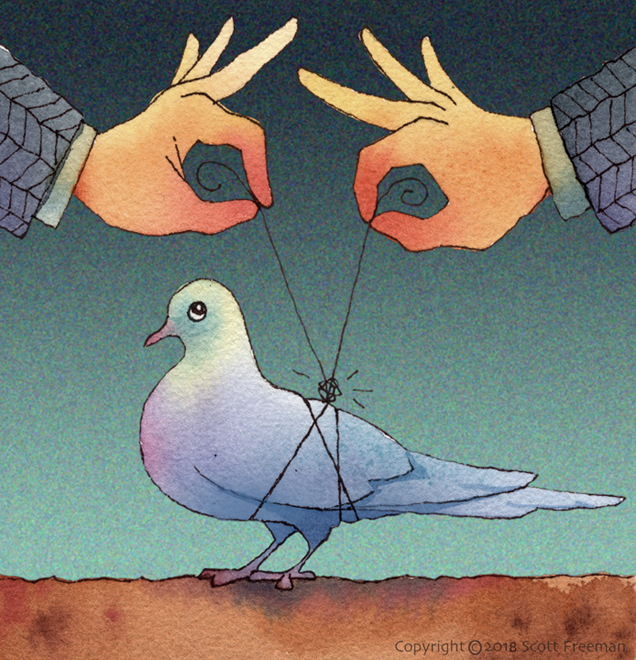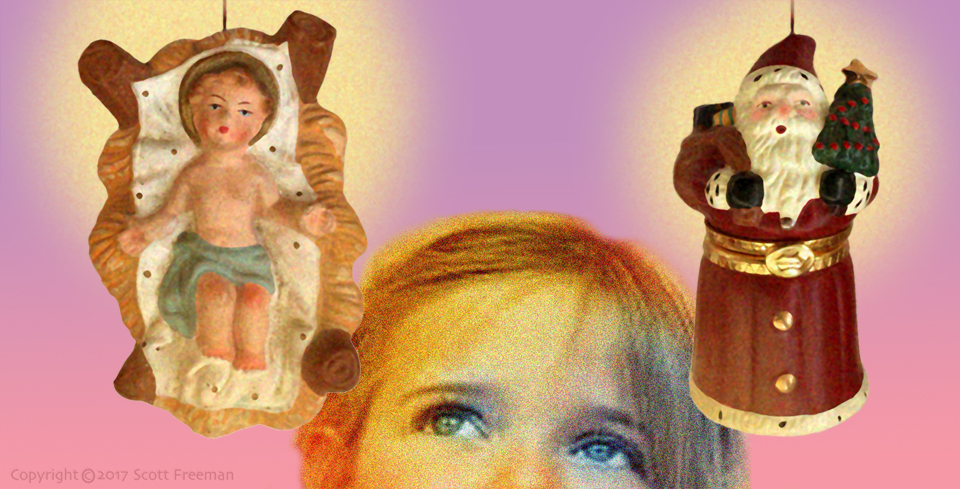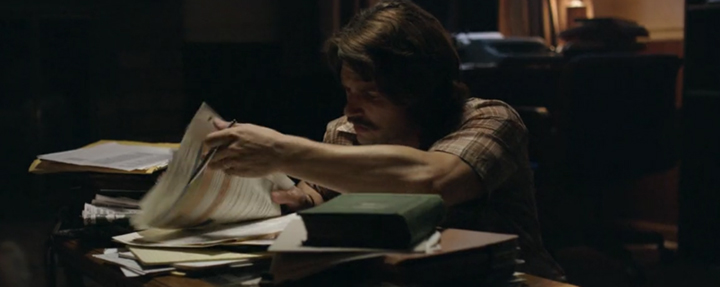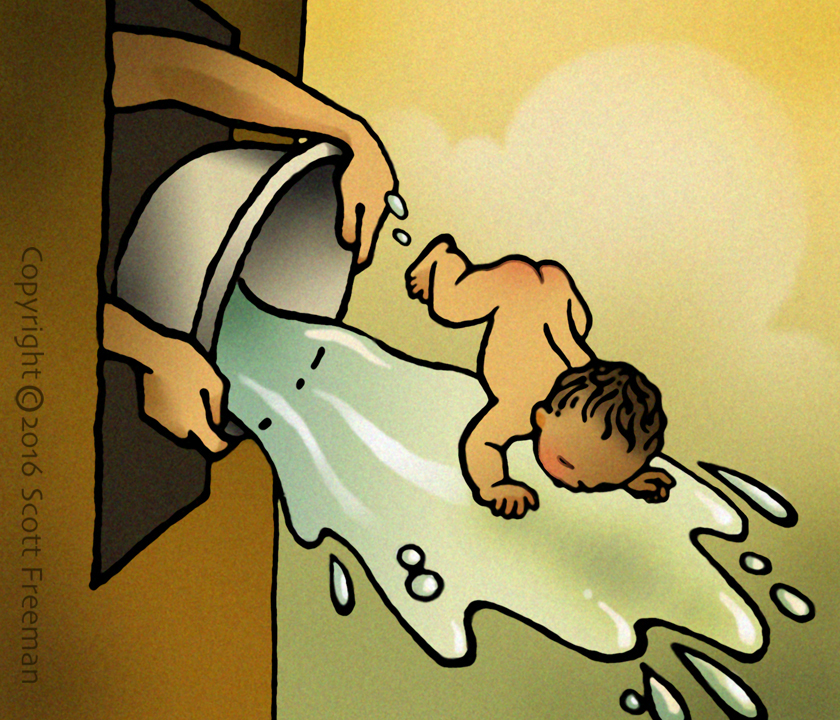
I spend a fair amount of time online, perhaps more time than I should, dialoging with atheists and “skeptics” about worldview issues. It’s one of my favorite things in life. It helps me to see outside of my own frame of reference, and to understand my own beliefs better.
It causes me to empathize with those who see things differently than I do, and to take more care in how I present my beliefs. Sometimes it even moves me to change the way I think about an issue.
I’ve been doing this for several years now, and over time I’ve seen how rare it is for anyone on any side of any issue to be logically persuaded into changing his or her beliefs. This is true regardless of how ridiculous those beliefs might be, whether it be belief in a flat earth or a belief that life on our planet accidentally arose from non-living matter. I’ve come to suspect that we humans generally don’t believe things for logical reasons – instead we tend to use logic to justify what we want to believe, at least when it comes to the macro questions.
If one is clever enough, one can justify almost any belief.
To complicate matters, no one gets the luxury of 100% certainty that their worldview presuppositions are true. This is true of both theist and atheist, though atheists/materialists tend to strenuously disagree that their presuppositions rest on faith and dogma. But they do, and it is a simple matter to prove it.
Some recent conversations have set me to thinking about the role of biblical revelation in living a life where decisions proceed from belief. The question of whether or not the Bible actually is God’s revelation to us, and whether it is trustworthy, is another question. For the scope of this brief post let us assume that the answer to that question is “yes.”
Revelation describes the shape of reality
Revelation does many things for us. Perhaps most importantly, it gives us a linear, progressively unfolding story of God’s interaction with humanity throughout history – His “spiritual history” of humanity. As such it reveals and affirms very specific details about God that we could not otherwise know. It gives us an objective standard against which we can correct our misconceptions (2 Tim 3:16). That is immeasurably valuable.
But revelation gives us an even more basic picture. It authoritatively tells us the shape of the reality of our physical world, including our own inner makeup, and also gives us specific social structures that God designed for us. This enables us to have the confidence to pour our lives into the right things.
None of this is as obvious as it might seem. Especially today. For those without this transcendent authority, our already broken world is becoming even more confusing.
What once were considered the most basic facts of life are now being thrown into question. I see intelligent, well-intentioned people who are interested in fairness, justice, and compassion, bobbing like corks in an ocean of rhetoric, falling for unproven ideologies in the name of the fairness and compassion that they seek. Nowhere is this truer than in the issues of sex, gender, marriage, family, and parenting.
I contend that, apart from revelation, we can’t know true and compassionate answers around these questions.
As sex, gender, marriage, family, and parenting are redefined by secular culture, we are all going to have to independently choose what we believe is the compassionate course. Neutral ground is disappearing. Many in this culture will come to the end of their lives to find that they poured their lives into a course that they thought was compassionate, but which turned out to be harmful to children, and thus to the whole society.
Sex, Gender, & Revelation
Let’s see how this works using as an example what was, until very recently, arguably the most basic fact of human sexual reproduction – the concept of male and female. It’s difficult for me to believe that there is a serious movement to blow up this concept, and even more difficult to believe that so many young people are actually buying into it. But here we are.
The new claim is that “sex is what’s between your legs; gender is what’s between your ears.” The idea is that a person may have a perfectly functional male body, but if that person believes himself to be female, then he is in fact female and this is not to be questioned. This is a new idea.
To clarify, I do not dispute that gender dysphoria is a real thing, and I don’t believe it is something a person chooses. There is no question that “trans” people have existed throughout history around the world; sometimes thought of as a “third sex.” But the existence of trans people does not prove that a person can be biologically male, yet female in actuality because he thinks he is. There has been no new scientific discovery proving that such is the case. No one knows for sure what’s going on here. This belief is part of an ideological movement that seeks to establish the idea of gender as a fluid spectrum with an unlimited number of manifestations. (Google Postgenderism).
By contrast, the creation story in the Torah states that God made human beings male and female. Jesus affirmed this idea. Followers of Jesus can therefore have the confidence that this is the shape of reality as God created it. This renders the fact of gender dysphoria to be a manifestation of our broken world; a world which Jesus came to restore to unity in truth. A person whose mind tells them they are the opposite gender from that of their physical body is experiencing a profound separation. We should love such a person no less than we would love anyone with any other type of disability.
Revelation enables us to land on the side of compassionately affirming reality as God intended it. To seek reconciliation and community to every extent possible. To confidently teach and model to our children the truth about God and His creation.
Other matters that matter
There are other foundational truths which secular culture is attempting to obliterate. Revelation enables us to cut through the rhetoric and commit ourselves to a good course. This is critical for parents as we have small people in our care.
By revelation we can be sure that marriage is not merely an artificial cultural construct, but something ordained by God at creation and affirmed by Jesus. Lifelong, sexually exclusive, monogamous marriage between a biologically unrelated adult male and female is God’s design for human flourishing. That doesn’t mean it’s easy or “natural.” That doesn’t mean it always works. But I think it does mean that we’re not free to redefine something that God has clearly defined.
By revelation we can have a working “self-knowledge” regarding what is natural and what is supernatural. In a world that tends to equate what is natural with what is good, we can have clear direction as to what impulses to put down and what impulses to act on. Being born of and led by the Spirit gives us clarity for living life. Revelation affirms for us how that should look. In the brilliance of Gods plan, revelation shows us not a written code to follow, (that was Mosaic Covenant,) but instead offers us the good news of the possibility of internal change.
Finally, by revelation we can be sure that God created us for loving relationship, and that life is about relational unity – first with God, then with others. This helps us to make life decisions and daily choices about where to spend our time. To remember that people are more important than things. To invest in our children yet without making family into an idol. To bother to reconcile broken relationships. To not live in relational isolation from other human beings.
I’m grateful for God’s revelation to us because life can be confusing, and false voices can sound surprisingly convincing. Life will be hard whatever we choose. My hope for all of us is that we may find over time that we didn’t fight and struggle toward a goal for our entire lives only to find that we were fighting against the true shape of reality; that we missed the end for which we were created. May we pour our lives into pursuits that bear fruit for life. May God lead you into life!




 I was pleasantly surprised when I recently went to see The Case for Christ. Grab your spouse or a friend and see it while it’s still in theaters.
I was pleasantly surprised when I recently went to see The Case for Christ. Grab your spouse or a friend and see it while it’s still in theaters.